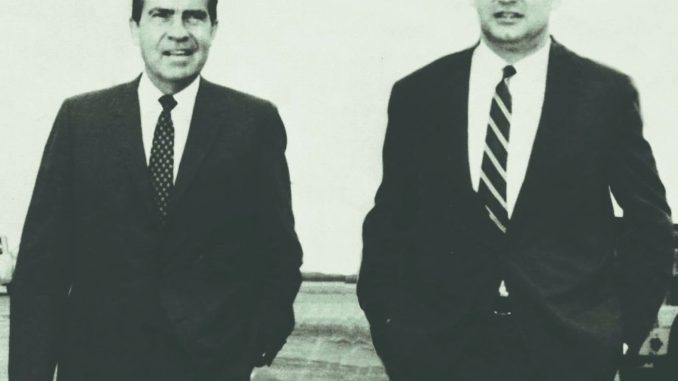
There are plenty of mossbacks out there who miss the age of print. Who can forget The New York Daily News of the 1970s or The New York Post of the 1980s and ‘90s?
For The Daily News, Dick Young was the voice of the paper. It didn’t matter that he wrote a sports column. The contentious Young, a native of Washington Heights, set the tone for the entire paper, then the voice of the long vanquished outer borough ethnics: Irish, Italians, Orthodox Jews, Greeks and Poles, an angry electorate who provided the shock troops that delivered for Richard Nixon, James Buckley, Ronald Reagan, Alfonse D’Amato, Rudy Giuliani, and George Pataki back when New York was still a two-party state.
During the Seventies, a young Pat Buchanan’s syndicated column was carried by The Daily News. Later, it moved to a more hospitable home at Rupert Murdoch’s New York Post. Now the man, at age 84, has retired his long-running column.
After Buchanan’s failed 2000 presidential run, The Post, as I recall, no longer carried his column. What a run he had. During those decades, no pundit could make a newspaper jump like Patrick J. Buchanan. He dominated The Post the same way that Young held sway over The Daily News. Buchanan’s work was—and is—both learned and provocative, itself a difficult standard to achieve and maintain. Buchanan’s style was short and to the point, words written as hard as the one-two combination punches he used to throw at the punching bag in the basement of his boyhood home in Washington, DC.
Buchanan was an English major at Georgetown University. He was a history buff. This gave his arguments a sound historical and literary foundation. Most pundits throw out arguments and incentives. Buchanan was plenty controversial, but the man had a thorough knowledge of Western history and literature. Just read his 14 serious-as-a-heart attack books.
Buchanan’s career was divided into two parts: The Goldwater-Reaganite Cold War warrior of the 1960s, ‘70s, and ‘80s, followed by the lonely America First champion of the early 1990s and beyond.
The latter represented the road not taken. When Buchanan used his immense media platform to articulate a policy of trade protectionism, immigration restrictions, and anti-interventionism, Fred Barnes crowed: “You guys aren’t a wing of the Republican Party, you’re not even a feather!”
So Buchanan, urged on by his younger sister, Bay, ran for president in 1992. His 37 percent vote in the New Hampshire primary spelled the doom of George H.W. Bush’s presidency and inspired Ross Perot to enter that year’s race.
Four years later, Buchanan won the New Hampshire primary, igniting a left/right media onslaught unseen in American history. GOP voters stuck with Bob Dole, the safe choice, someone with no prospects of unseating Bill Clinton.
There was never a chance of a Buchanan presidency. It matters. If Buchanan had been elected in 1996, America would be a far different place today: Borders sealed, manufacturing jobs right here in the U.S. of A., marriage strictly between a man and a woman, historical monuments protected, a nation enjoying peace and prosperity.
Above all, the terrorist attacks of Sept. 11, 2001 would never have taken place. A Buchanan presidency would not have U.S. troops in Saudi Arabia, a fact that apparently set Osama bin Laden into a terrorist mode. Further, the terrorists who committed the crimes never would have been allowed into the United States in the first place. This is no consolation for those who continue to suffer. It is, I maintain, undeniable.

